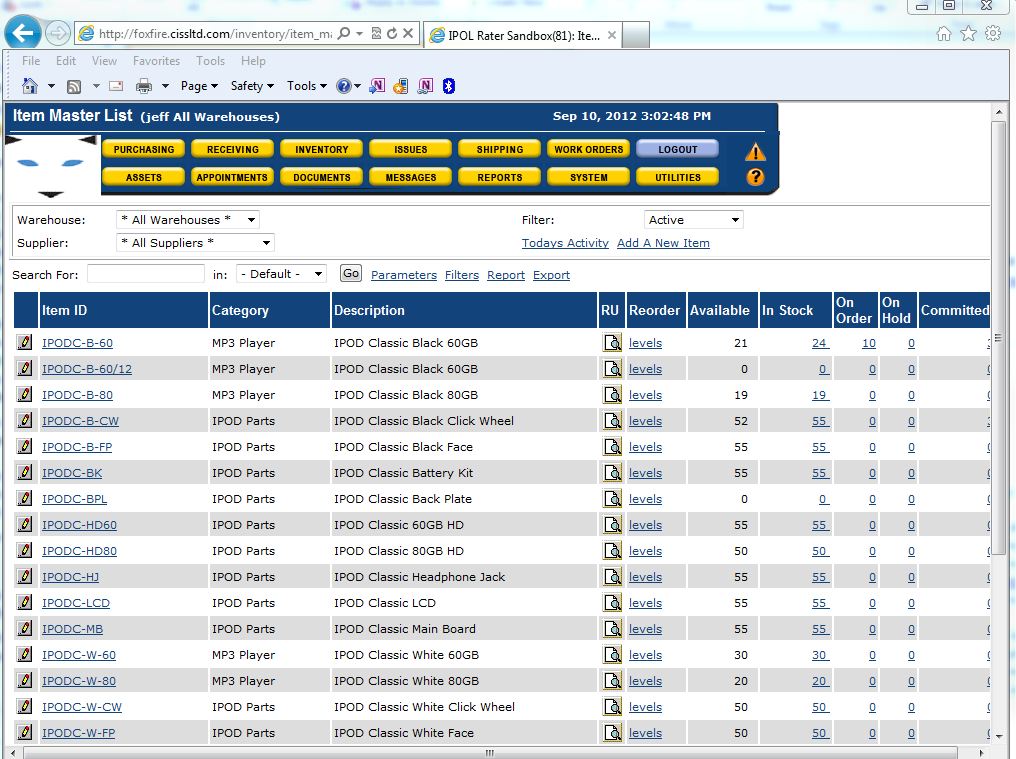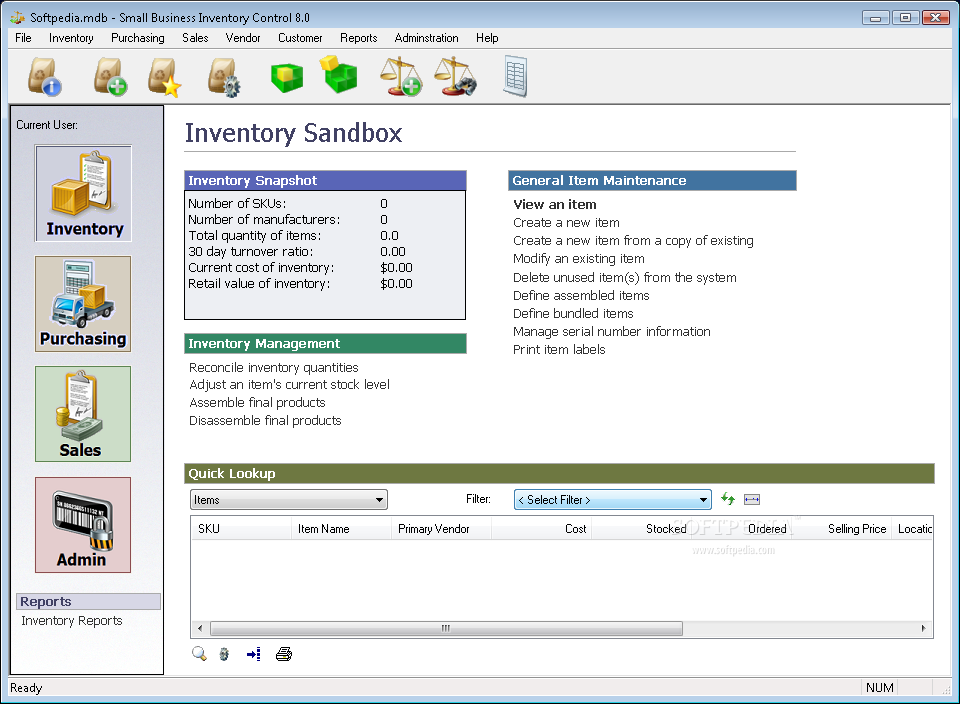Discover the power of Small Business Inventory Control Pro Full Version, the comprehensive solution for managing your inventory effectively. This software empowers small businesses to streamline operations, optimize stock levels, and boost profitability. Join us as we delve into its features, benefits, and best practices to help you take control of your inventory and drive business success.
Inventory control is a crucial aspect of any small business, ensuring that you have the right products, in the right quantities, at the right time. Small Business Inventory Control Pro Full Version provides a robust platform to track your inventory, manage orders, and generate insightful reports, empowering you to make informed decisions and stay ahead of the competition.
Overview of Small Business Inventory Control Software
Inventory control software is a valuable tool for small businesses, providing a comprehensive solution to manage inventory levels, streamline operations, and improve profitability. It helps businesses track inventory items, optimize stock levels, and gain insights into their inventory performance.
By implementing inventory control software, small businesses can experience numerous benefits, including:
- Reduced inventory costs: By optimizing stock levels and preventing overstocking, businesses can minimize inventory carrying costs and improve cash flow.
- Improved customer satisfaction: With real-time inventory visibility, businesses can avoid stockouts and ensure that customers receive their orders on time, enhancing customer satisfaction.
- Increased efficiency: Inventory control software automates many inventory management tasks, such as order processing, stock adjustments, and reporting, freeing up time for other critical business activities.
li>Better decision-making: With accurate and up-to-date inventory data, businesses can make informed decisions about purchasing, pricing, and marketing strategies, leading to improved profitability.
Features of Small Business Inventory Control Software: Small Business Inventory Control Pro Full Version
Inventory control software offers a range of features that are crucial for small businesses to manage their inventory efficiently and effectively. These features include:
- Inventory Tracking:This feature enables businesses to keep track of their inventory levels in real-time, providing visibility into the quantity and location of each item.
- Order Management:Inventory control software allows businesses to manage their orders, including processing, tracking, and fulfilling them. It helps businesses avoid overstocking or understocking by providing insights into customer demand.
- Reporting:Robust reporting capabilities are essential for businesses to analyze their inventory data and make informed decisions. Inventory control software provides reports on inventory levels, sales trends, and other key metrics.
These features help small businesses streamline their inventory management processes, reduce costs, and improve customer satisfaction.
Inventory Tracking
Inventory tracking is a core feature of inventory control software. It enables businesses to:
- Track inventory levels in real-time, including quantity on hand, on order, and in transit.
- Set inventory reorder points to ensure they never run out of stock.
- Identify slow-moving and obsolete inventory to optimize their inventory mix.
Order Management
Order management capabilities in inventory control software help businesses:
- Process orders quickly and efficiently, reducing the risk of errors.
- Track the status of orders, from order placement to delivery.
- Manage backorders and notify customers about expected delivery dates.
Reporting
Inventory control software provides businesses with a range of reports that help them analyze their inventory data and make informed decisions. These reports include:
- Inventory reports that provide insights into inventory levels, stockouts, and inventory turnover.
- Sales reports that show sales trends, customer behavior, and product performance.
- Profitability reports that help businesses understand the profitability of their inventory items.
Considerations for Choosing Small Business Inventory Control Software

Selecting the right inventory control software is crucial for small businesses to optimize their operations and maximize profitability. Here are key factors to consider when making a decision:
Cost
- Small businesses often operate on tight budgets. Consider the upfront and ongoing costs associated with the software, including licensing fees, maintenance fees, and any additional charges for support or training.
- Evaluate whether the software offers a free trial or demo to test its functionality before committing to a purchase.
Ease of Use
- Choose software that is intuitive and easy to navigate, even for non-technical users. A user-friendly interface will minimize the learning curve and streamline operations.
- Consider the training and support resources provided by the software vendor to ensure a smooth implementation and ongoing assistance.
Scalability
- As your business grows, your inventory management needs will evolve. Choose software that can scale to accommodate increased inventory volume and complexity.
- Consider the software’s ability to handle multiple locations, integrate with other business systems, and support future expansions.
Implementation of Small Business Inventory Control Software

Implementing inventory control software in a small business is crucial for efficient inventory management. Here’s a step-by-step guide to help you implement the software successfully:
Data Entry
Data entry is a vital part of implementing inventory control software. It involves entering information about your products, including their names, descriptions, quantities, and prices. Accuracy is crucial to ensure that the software provides accurate data and reports.
- Gather all necessary product information before beginning data entry.
- Use a barcode scanner to automate data entry for products with barcodes.
- Cross-check data entry to minimize errors.
- Train staff on proper data entry procedures.
Training
Training is essential to ensure that your team can effectively use the inventory control software. Provide training on the software’s features, functions, and reporting capabilities.
- Conduct hands-on training sessions.
- Provide written documentation for reference.
- Offer ongoing support and refresher training as needed.
- Encourage staff to ask questions and provide feedback.
Ongoing Maintenance
Ongoing maintenance is necessary to keep the inventory control software up-to-date and functioning optimally. This includes regular software updates, data backups, and system checks.
- Schedule regular software updates to ensure access to the latest features and security patches.
- Perform regular data backups to protect your inventory information.
- Conduct periodic system checks to identify and resolve any issues.
- Monitor the software’s performance and adjust settings as needed.
Best Practices for Small Business Inventory Control
Maintaining optimal inventory levels is crucial for small businesses to ensure efficient operations and profitability. Implementing effective inventory control practices can help businesses avoid overstocking, minimize losses due to spoilage or obsolescence, and improve customer satisfaction by meeting demand promptly.
Here are some best practices to consider for effective inventory control in a small business:
Inventory Counting
Accurate and regular inventory counting is essential to maintain control over stock levels. Implement a systematic inventory counting process, such as cycle counting, to ensure that inventory records match the physical stock on hand. Regular inventory counts help identify discrepancies, prevent shrinkage, and ensure accurate financial reporting.
Inventory Forecasting
Effective inventory forecasting helps businesses anticipate future demand and optimize stock levels. Utilize historical sales data, industry trends, and market research to forecast future demand. Accurate forecasting helps avoid overstocking, which can lead to increased storage costs and potential losses due to obsolescence, while also preventing stockouts that can result in lost sales and customer dissatisfaction.
Stock Optimization, Small business inventory control pro full version
Optimizing stock levels is crucial to minimize carrying costs while meeting customer demand. Implement inventory management techniques such as just-in-time (JIT) inventory or safety stock to maintain optimal stock levels. JIT inventory aims to minimize inventory holding costs by receiving inventory as close as possible to the time it is needed, while safety stock acts as a buffer to prevent stockouts during unexpected demand fluctuations.
Case Studies of Small Business Inventory Control Success

Inventory control software can significantly improve the efficiency and profitability of small businesses. Here are a few case studies of small businesses that have successfully implemented inventory control software:
Case Study 1: Retail Store
A small retail store implemented an inventory control system to manage its inventory of over 5,000 items. The system allowed the store to track inventory levels in real-time, identify slow-moving items, and optimize its purchasing decisions. As a result, the store reduced its inventory carrying costs by 15% and increased its sales by 10%.
Case Study 2: Manufacturer
A small manufacturer implemented an inventory control system to manage its inventory of raw materials and finished goods. The system allowed the manufacturer to optimize its production schedule, reduce lead times, and improve customer satisfaction. As a result, the manufacturer increased its production capacity by 20% and reduced its lead times by 30%.
Case Study 3: Distributor
A small distributor implemented an inventory control system to manage its inventory of over 10,000 items. The system allowed the distributor to track inventory levels in real-time, identify slow-moving items, and optimize its shipping routes. As a result, the distributor reduced its inventory carrying costs by 20% and increased its delivery speed by 15%.These case studies demonstrate the significant benefits that small businesses can achieve by implementing inventory control software.
By automating inventory management tasks, reducing inventory carrying costs, and improving customer satisfaction, inventory control software can help small businesses grow and succeed.
End of Discussion
In conclusion, Small Business Inventory Control Pro Full Version is an invaluable tool for small businesses seeking to optimize their inventory management. Its comprehensive features, user-friendly interface, and affordable pricing make it an excellent choice for businesses of all sizes.
Embrace the power of inventory control and unlock the potential for improved efficiency, increased profitability, and enhanced customer satisfaction.
Essential Questionnaire
Is Small Business Inventory Control Pro Full Version suitable for all industries?
Yes, Small Business Inventory Control Pro Full Version is designed to cater to a wide range of industries, including retail, manufacturing, distribution, and e-commerce.
Can I integrate Small Business Inventory Control Pro Full Version with other software?
Yes, Small Business Inventory Control Pro Full Version offers seamless integration with popular accounting and e-commerce platforms, ensuring a streamlined workflow.
What is the pricing for Small Business Inventory Control Pro Full Version?
Small Business Inventory Control Pro Full Version offers flexible pricing plans to suit different business needs and budgets.
